Materials for manufacturing interior doors
In the interior of an apartment, interior doors play an important role: they not only allow you to separate rooms from each other, but also affect the overall impression of the living space, can make its perception holistic – or, conversely, nullify the most interesting design idea if you choose them incorrectly.
The choice should be made taking into account the style of the apartment, operating conditions, design, as well as how soon you plan to replace them. And this largely depends on the material from which they are made. The best materials for this purpose will be natural ones – their service life is longer than that of artificial analogues, and their aesthetic indicators are higher. However, the price is also higher, which plays a decisive role when choosing.
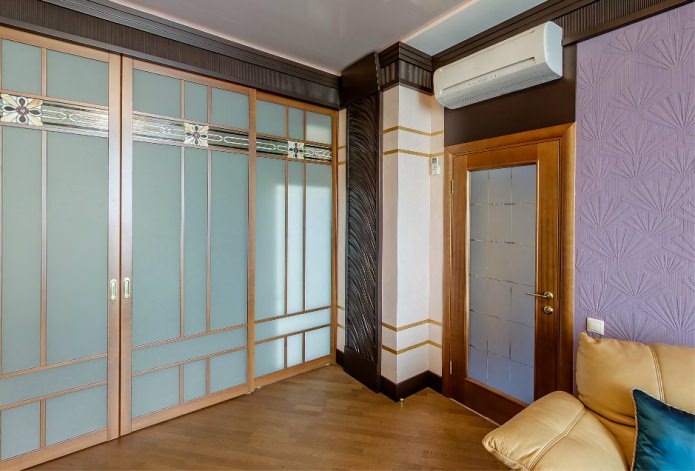
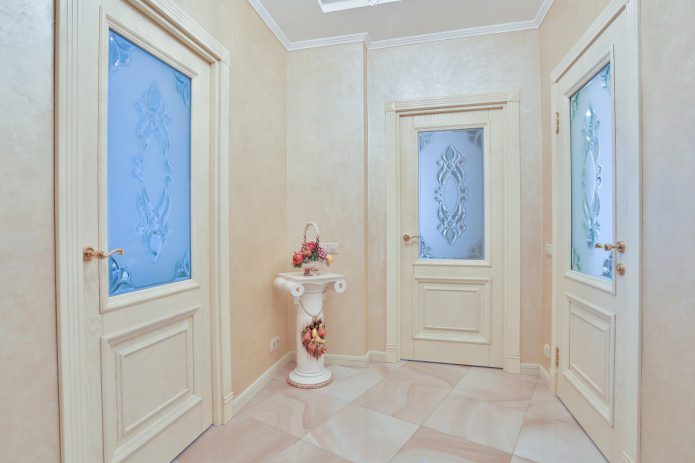
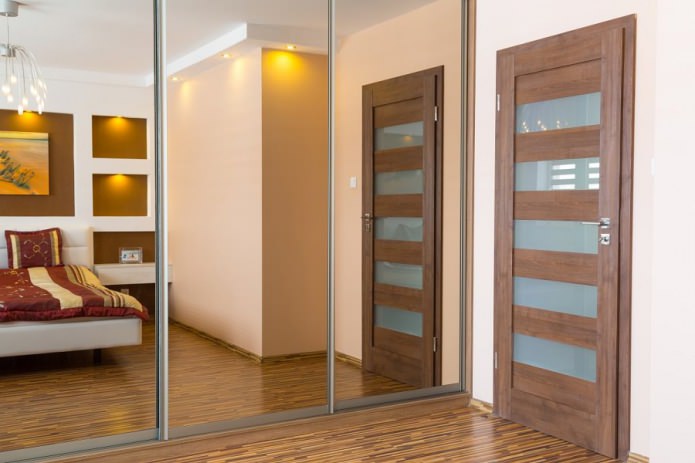
Modern interior doors in the apartment interior are most often made of the following materials:
- PVC. Interior doors made of plastic are easy to care for and budget-friendly. Their main advantage is moisture resistance. Unfortunately, plastic quickly loses its appearance, the doors “become cloudy”, and this can spoil any interior. Usually used in offices, warehouses.
- Fiberboard. Wood-fiber boards are practically safe for health. In the production process, they are refined, treated with dyes. As a rule, simple-shaped panels are made of this material. Of course, the strength of such products is much lower than wooden ones, but the price is also lower.
- MDF. The material allows you to make panels of complex shapes, with carved decor. It can be laminated on top, covered with artificial or natural veneer. In terms of price-quality ratio, this is the most attractive option. Interior doors made of MDF are resistant to moisture, deformation, and will last a long time.
- Solid wood. Natural wood is a traditional material for door panels. The product is durable, easy to finish, you can use various design options. The disadvantage is that it absorbs moisture, so when used in damp rooms, additional finishing is required – coating with moisture-resistant varnish. Panels made of budget wood species, for example, pine, are covered with veneer of expensive species on top – this improves their performance and aesthetic qualities.
- Glass. Modern style in interior design dictates the use of modern materials. Glass door panels, on which a pattern can be applied, are welcome. The material does not deteriorate from moisture, which allows it to be used in bathrooms. The design options are quite wide: it can be a mirror surface, stained glass, matting – full or partial, in the form of a pattern.
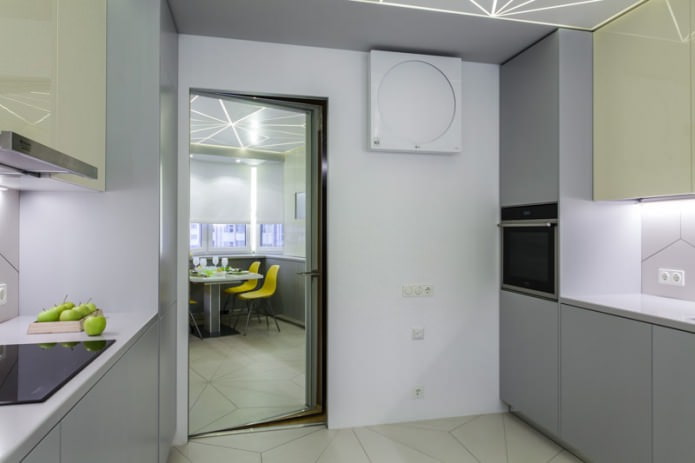
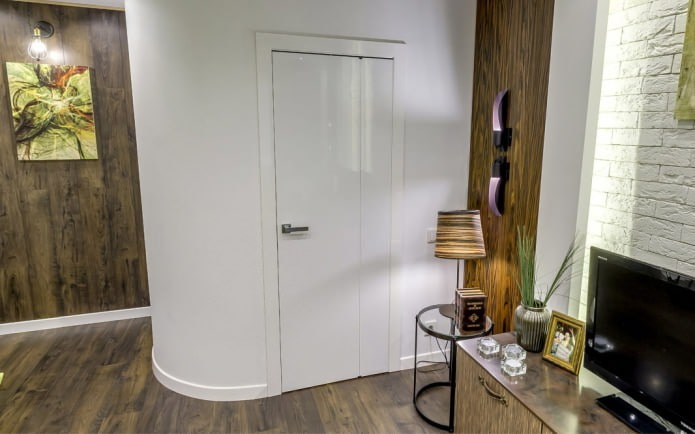
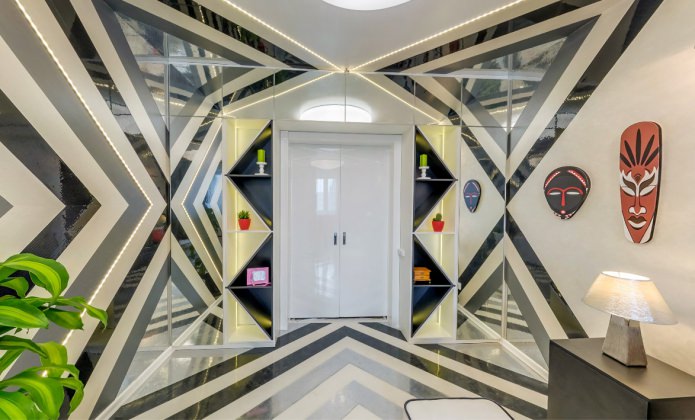
Color of interior doors in the interior of the apartment
Classic interior design assumes the compatibility of the color of interior doors with the color of the floor. As a rule, these are various shades of natural wood, which go well with various styles of interior design. In this case, the tone of the wood does not necessarily have to match: the floor can be two or three tones darker or lighter than the door leaf.

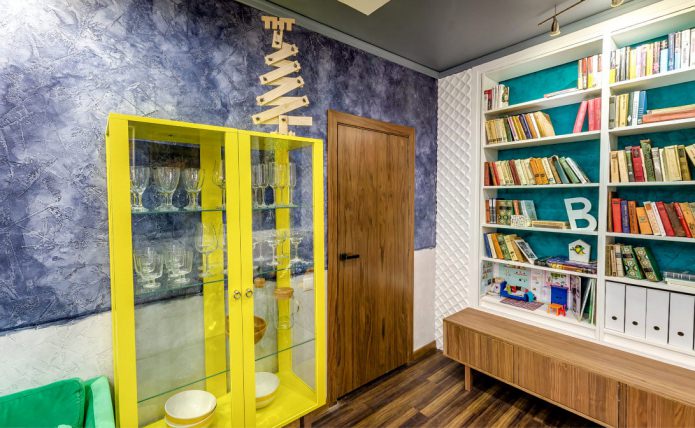
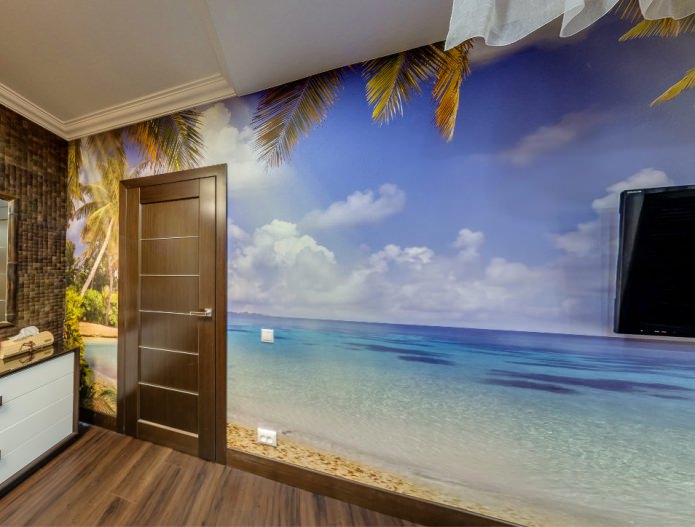
In monochromatic interiors, interior doors are used that blend in color with the walls, while the floors can be the same tone, or they can be contrasting. For example, white interior doors in the interior can be combined with a dark floor, creating the basis for a modern or Scandinavian interior. Modern interiors involve the use of non-standard materials, such as mirrors, metal, glass, plastic – and in this case, the color of the door leaf can be very different.
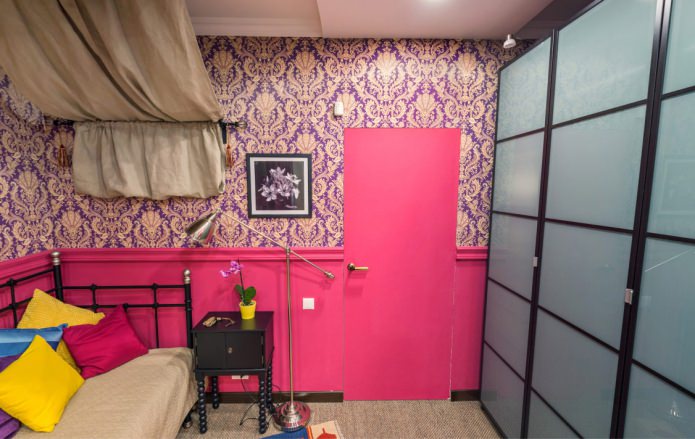
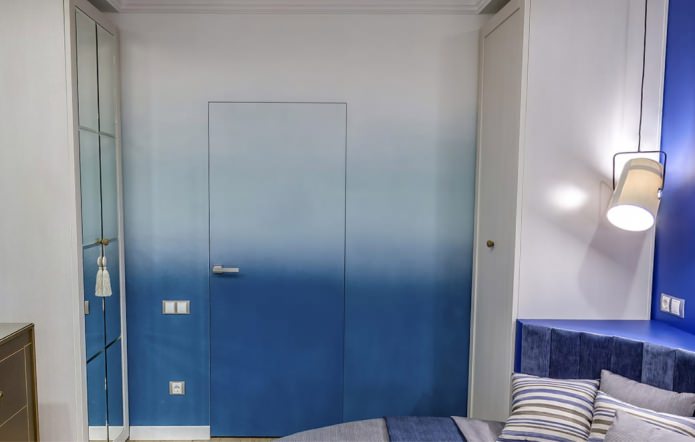
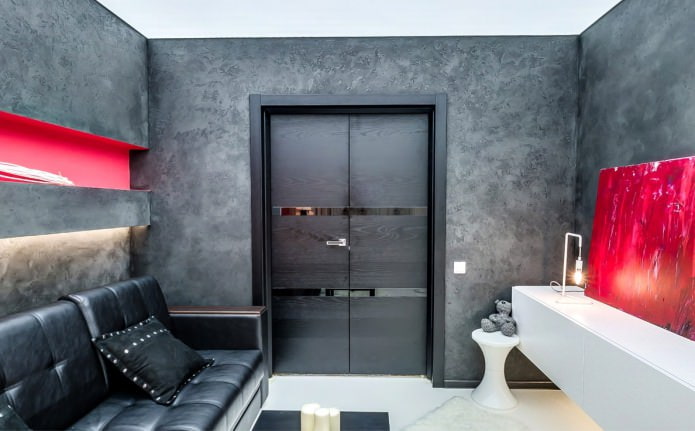
In a monochromatic interior, gray interior doors combined with gray walls of the same tone, lighter ceilings and a darker floor will create the illusion of high ceilings and serve as a magnificent background for displaying furniture, textile elements of decor and decorative accents.

However, the most stylish and expensive interiors are those in which natural wood or its veneer. For example, an interior with interior doors “bleached oak” will require significant financial investments, but a door veneered with oak plates or their imitation is more affordable.
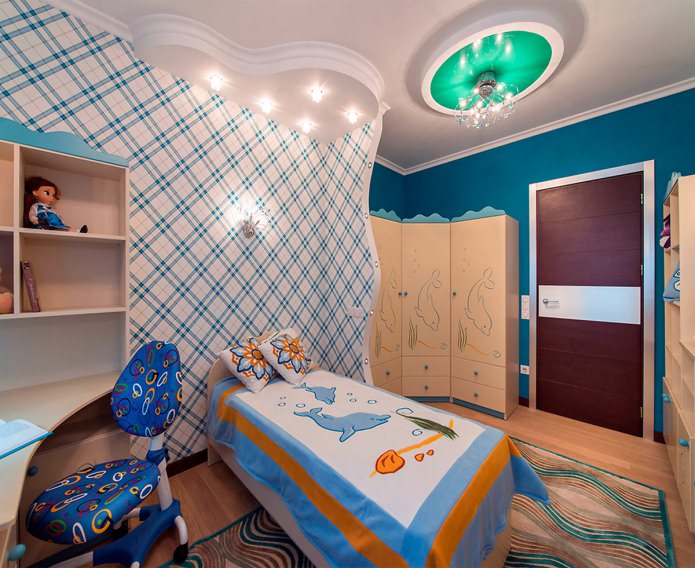
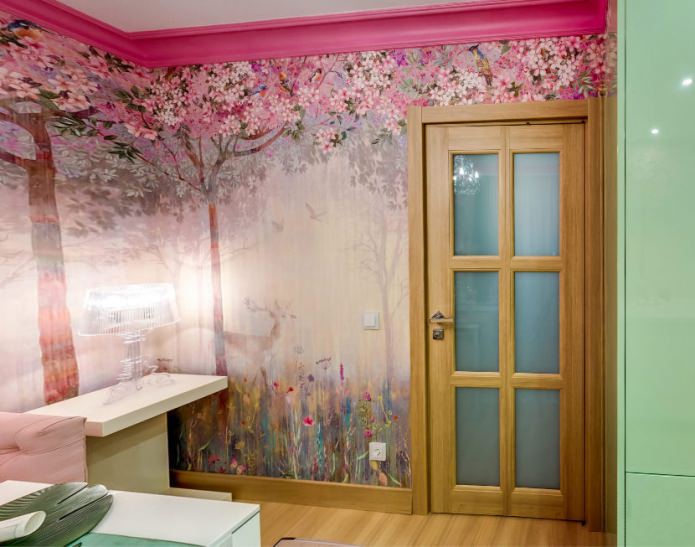
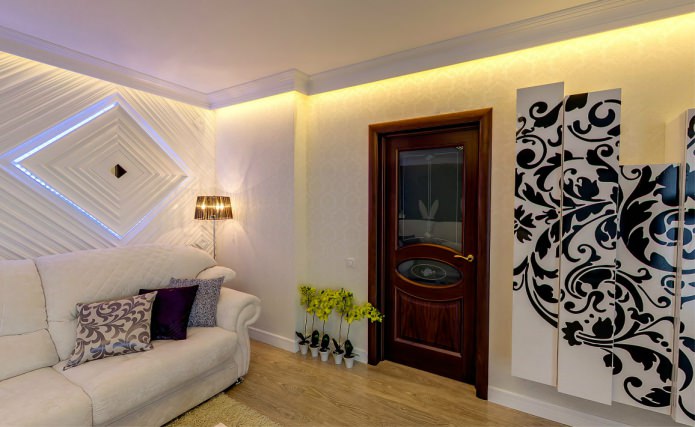
Recently, furniture made of wenge wood, or African rosewood, has become especially popular with designers. This is a very beautiful and very expensive material with an interesting texture and a variety of shades. Wenge interior doors look very stylish in the interior, but this material is rare and expensive, unlike various imitations, which are quite affordable and not inferior to the original in expressiveness.
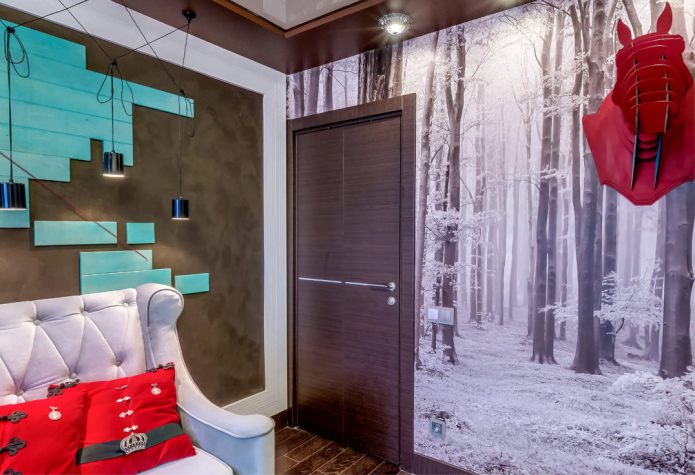
Sliding interior doors
The most common type of door is a hinged design – the door leaf is inserted into the door frame. This is a simple, classic, time-tested option. There are several varieties:
- Classic. They can have one or two leaves, swing open in one direction.
- Saloon. There is no rebate, they can swing open on both sides.
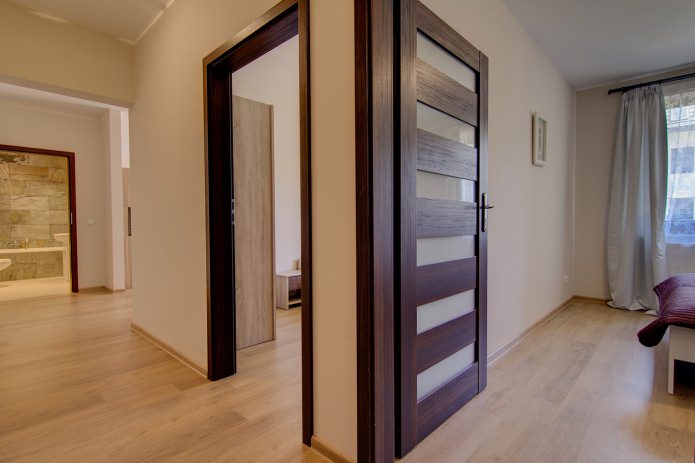
Another type of interior doors is sliding. They have been known in Asia for a long time, they came to Europe relatively recently, but quickly gained popularity, as they allow you to solve a lot of interior problems. Several types of sliding doors are common:
- Sliding. The door leaf is attached to a guide equipped with rollers, which is attached to the wall. The door leaf slides along the wall, freeing up the passage. An option is when the guide is built into the wall, so the door “goes” into the wall.
- Compartment. The design of the doors resembles a sliding wardrobe. This allows you to save space by overlapping the panels when opening.
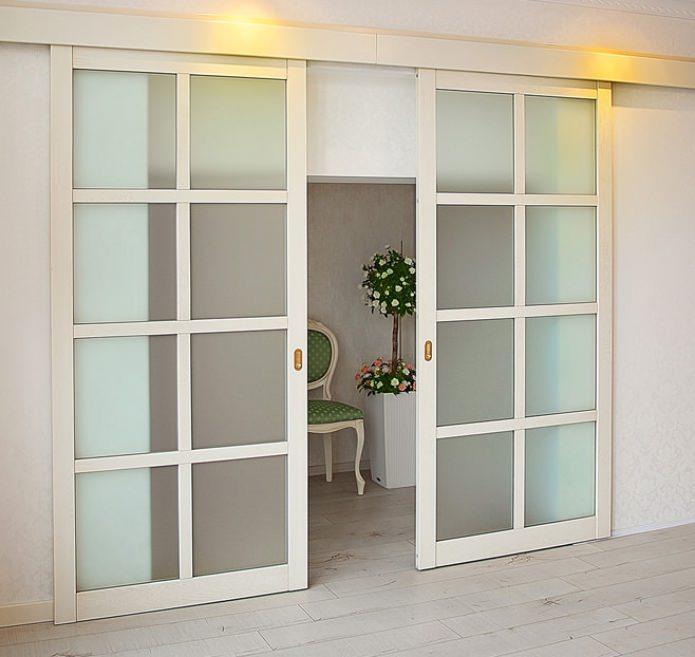
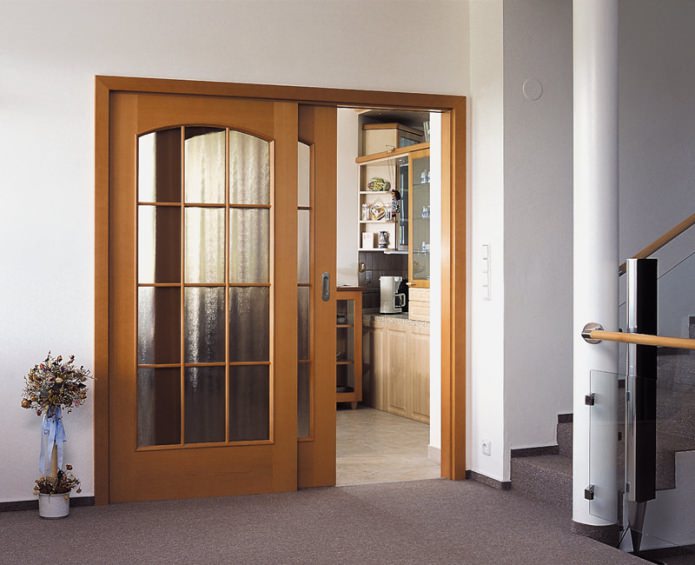
- Revolving. When opening, roto doors stand “across” the doorway, which allows saving space in narrow passages.
- Folding. The “accordion” of a folding door takes up virtually no space. Most often used to separate a bedroom from a living room or dressing room. The door leaf consists of narrow strips fastened with hinges that move on rollers along a guide, folding when open and straightening when closed.
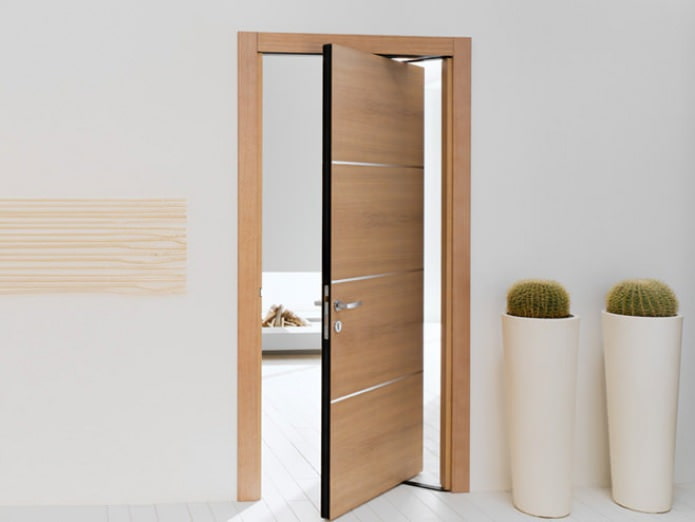
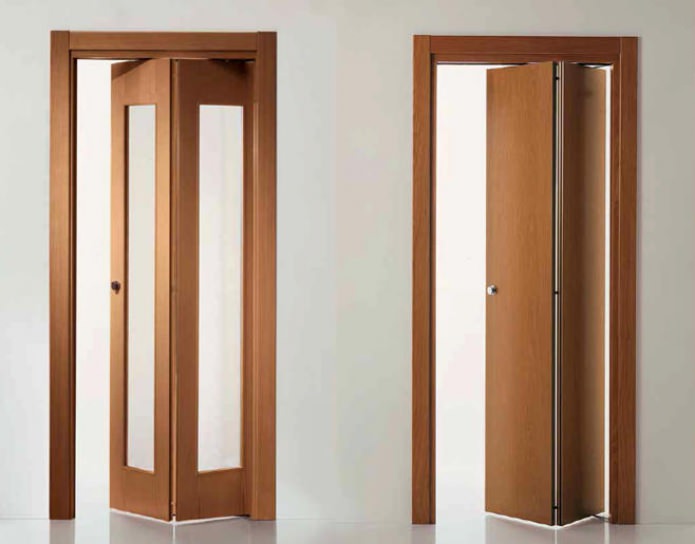
Important: All sliding doors have one thing in common: low sound insulation. If this point is significant, for example, the parents’ bedroom needs to be separated from the children’s room, it is better to use traditional swing doors. In addition, sliding options will cost more.
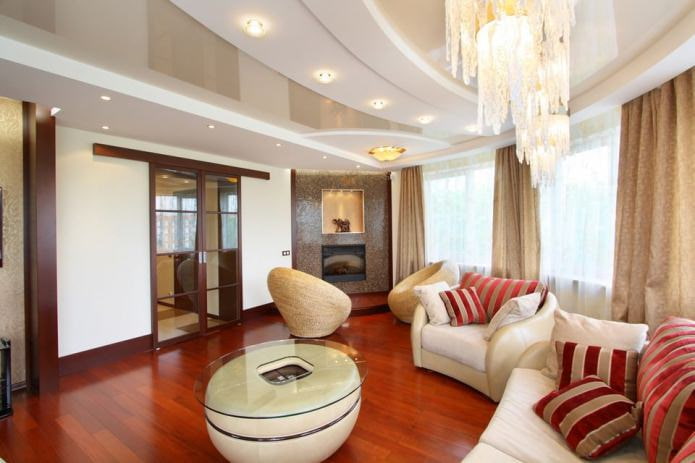
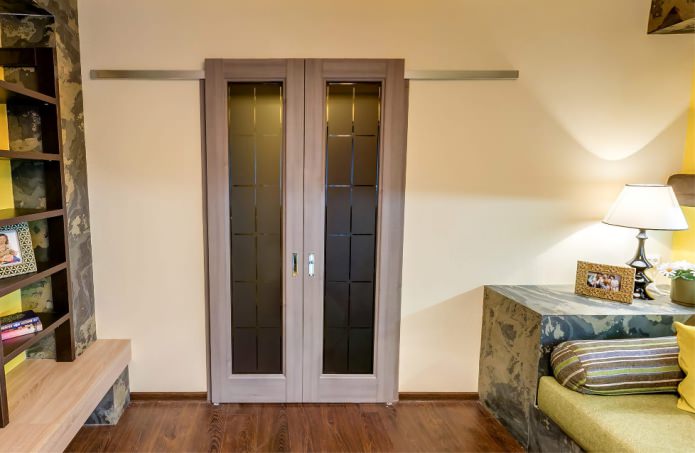
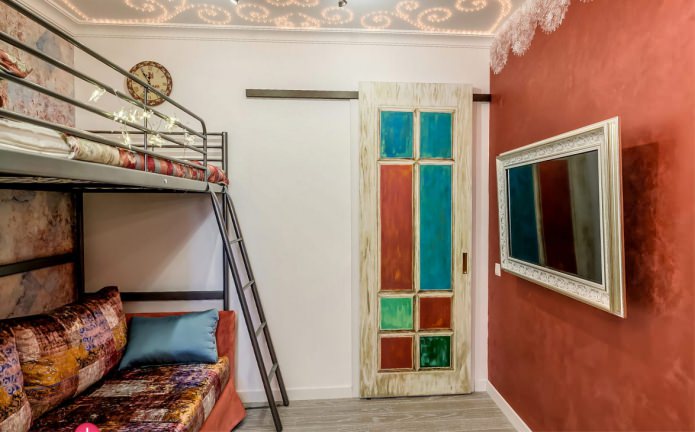

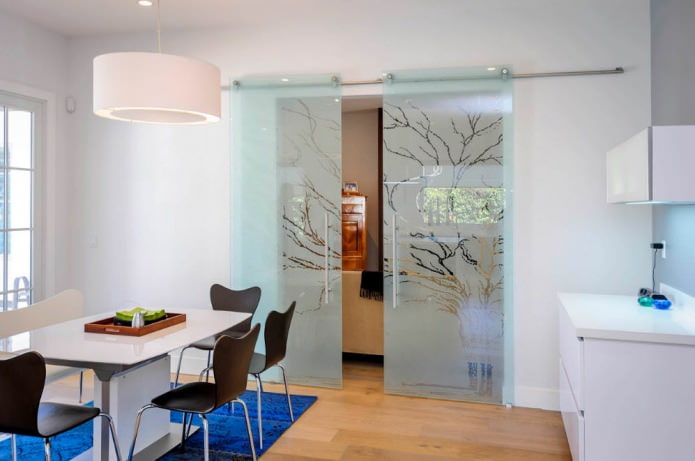
Interior doors with glass
Glass inserts allow not only to diversify the design, but also to let daylight into rooms where it cannot get in any other way. For example, a door with such an insert installed between the kitchen and a windowless hallway will make the hallway brighter during the day.
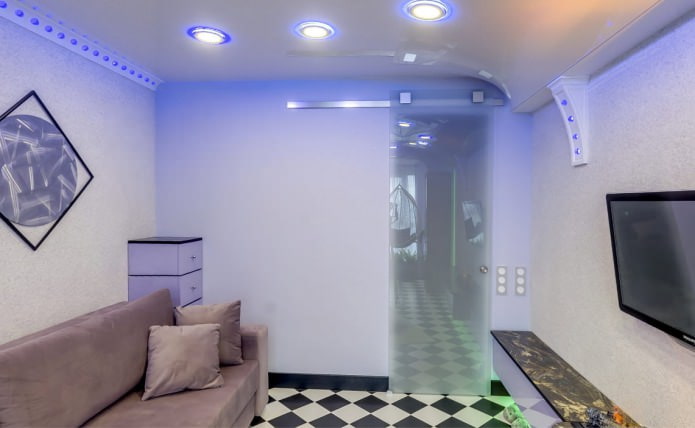
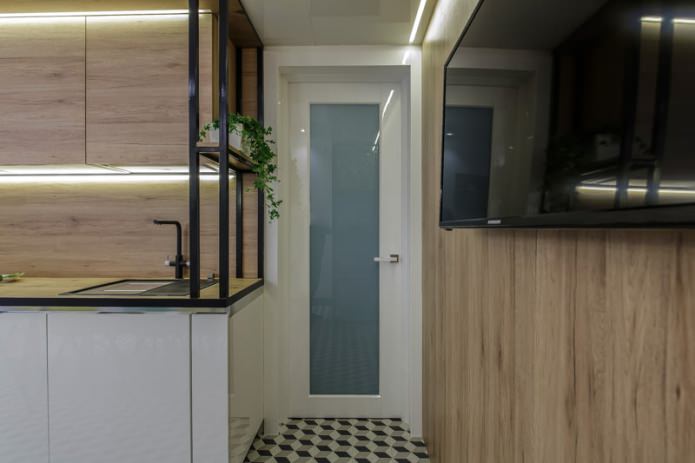
The glass for such inserts must be tempered to ensure safe use: if it is accidentally broken, small fragments are formed that are difficult to cut. The glass itself can be:
- Transparent, smooth or with a pattern;
- Frosted;
- Combined (transparent with a frosted pattern);
- Stained glass.
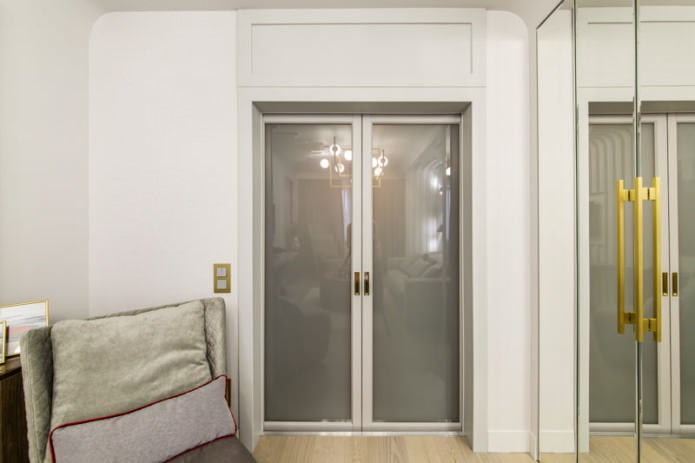
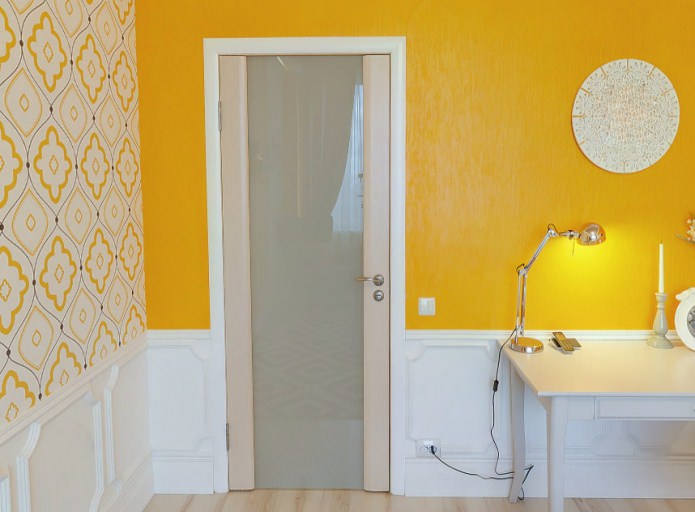
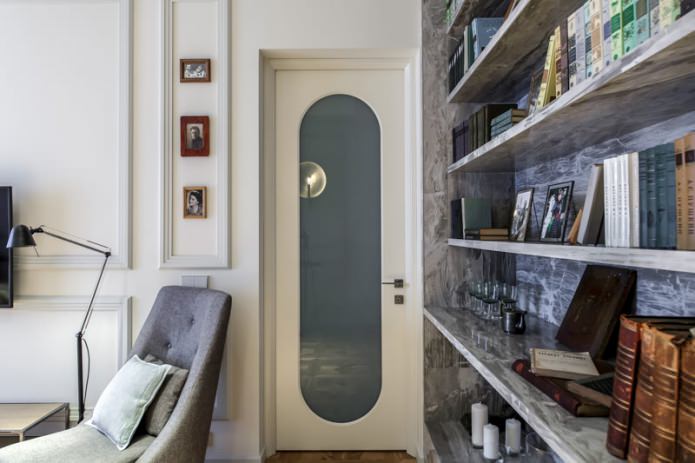
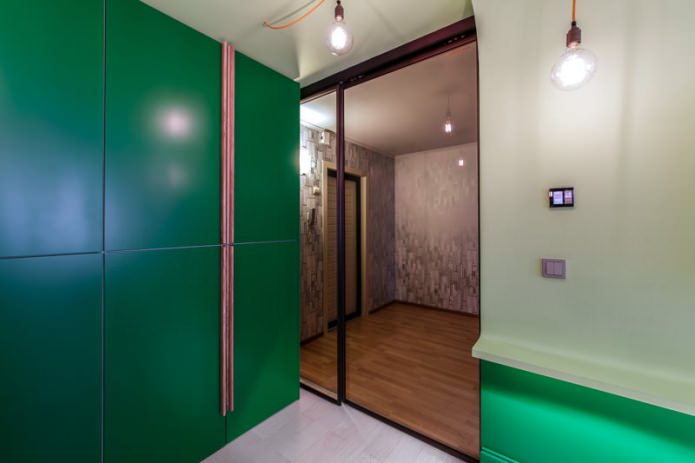
Photo of interior doors in the interior of modern apartments
Options for using various types of interior doors are presented below.

Photo 1. A sliding interior door to the bedroom made of frosted glass does not weigh down the interior and gives it a modern feel.

Photo 2. Contrasting door panels with glass inserts emphasize the geometric design of the interior.
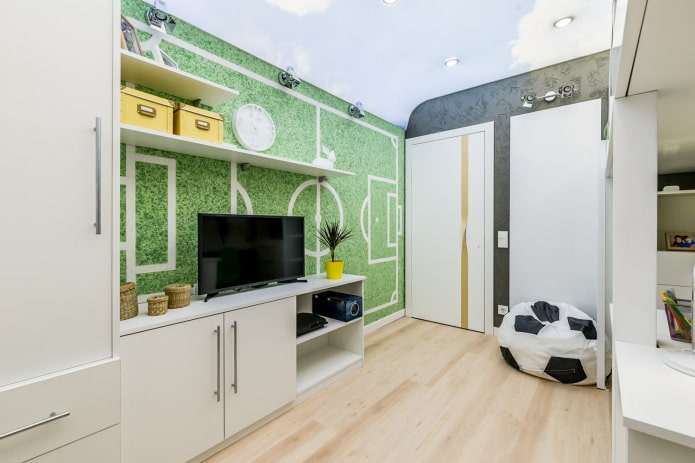
Photo 3. The door leaf matches the color of the furniture.

Photo 4. The glass panel is enclosed in a contrasting color frame and emphasizes the modernity of the interior.
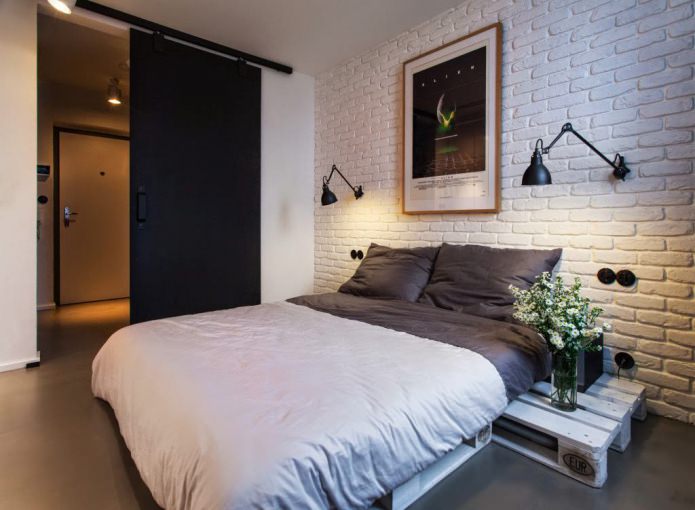
Photo 5. The sliding interior door looks great in the loft interior and does not take up space.
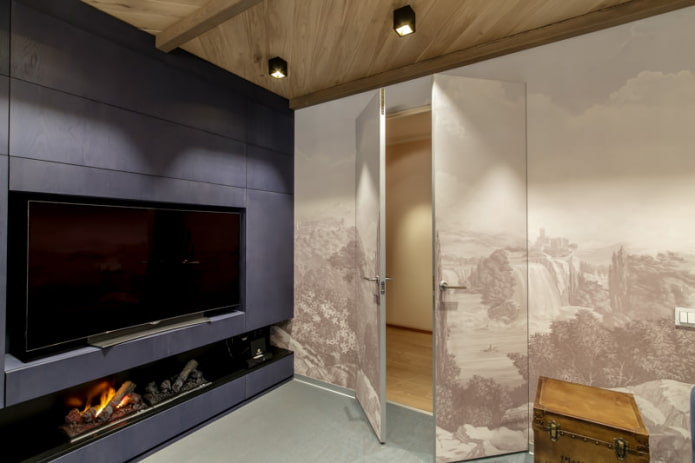
Photo 6. Invisible interior door, the pattern on the panels of which continues the pattern on the wall.
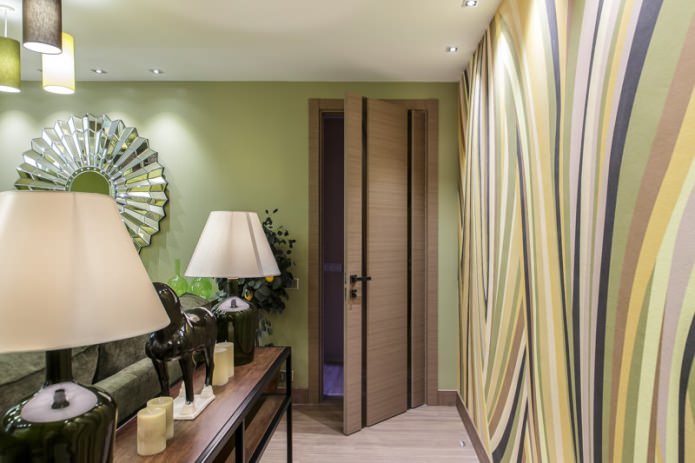
Photo 7. The color of the door leaf matches the floor covering.
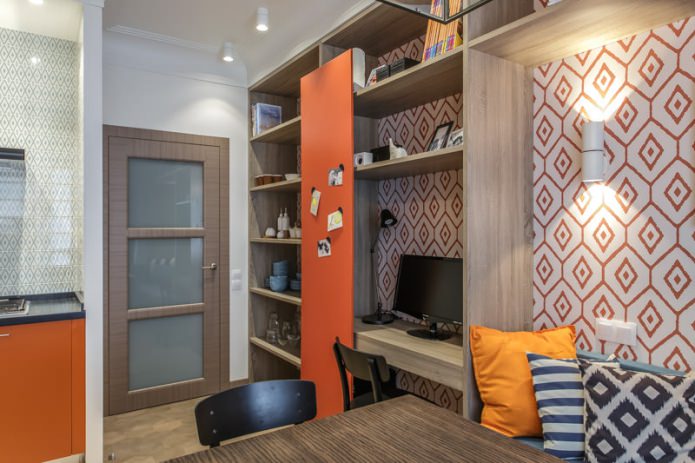
Photo 8. The color of the wooden elements of the interior door repeats the color of the furniture elements.
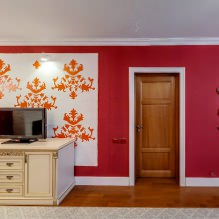
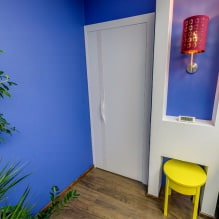
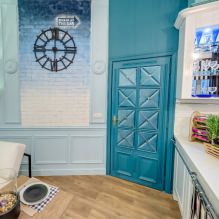
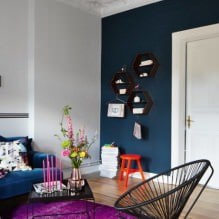
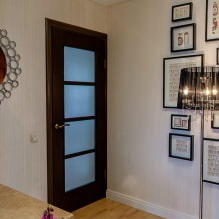
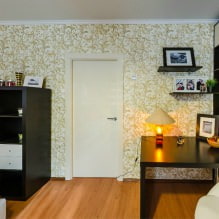
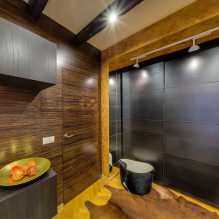
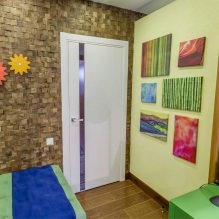
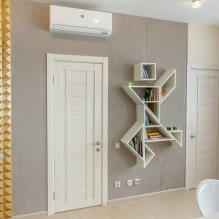
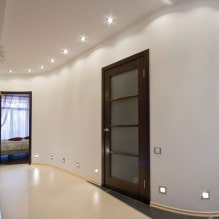
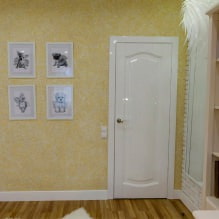
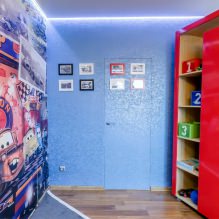
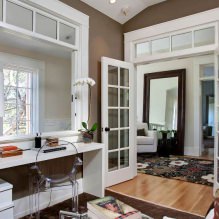
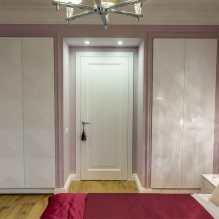
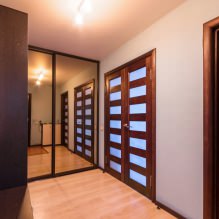
Now reading:
- 15 Best Ways to Store Spices in the Kitchen for Convenience and Style.
- Which sofa is best for a comfortable sleep every night?
- Small Kitchen Living Room: 40 Images and Design Tips.
- Your Ultimate Guide to Buying a Used Skoda Citigo
- Shelves in the interior: more than 50 photos and creative design solutions